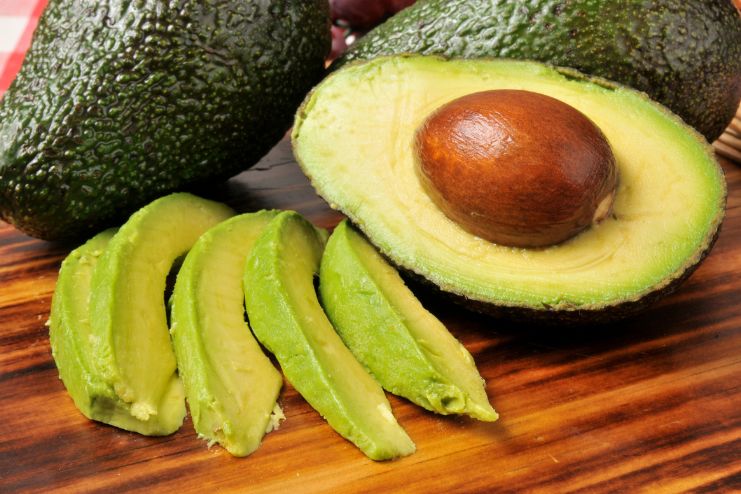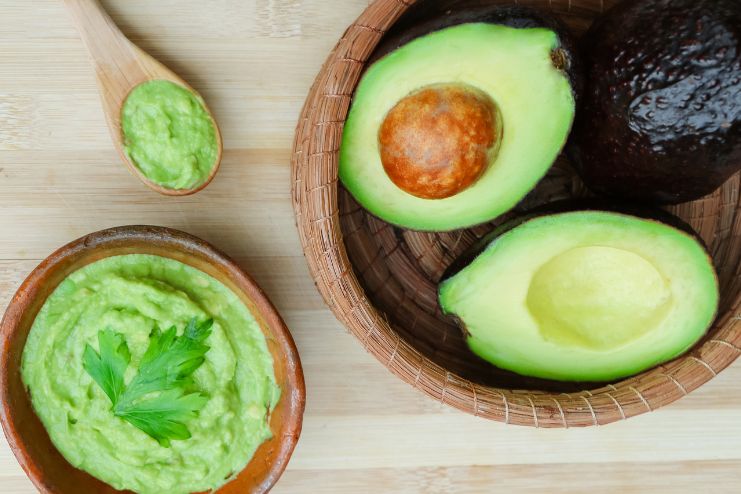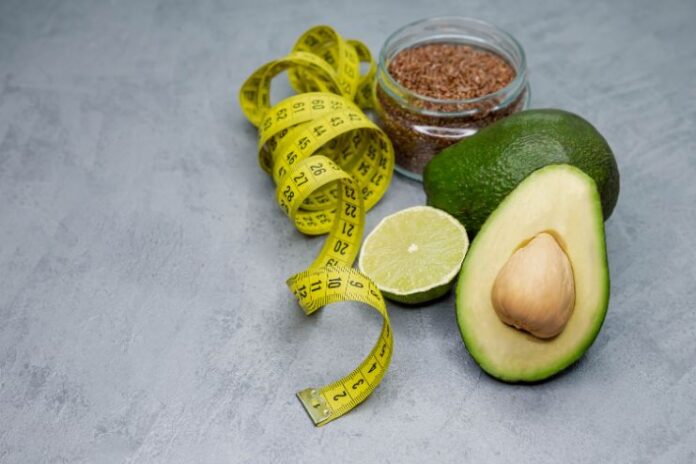Avocados have taken over the wellness scene, and for good reason—from Instagram smoothie bowls to fitness bloggers’ meal preps. This green fruit is advertised as a wonder food for everything from glowing skin to fat-burning magic due to its creamy texture and reputation as a “healthy fat.” But is it truly the weight-loss superhero that some portray it to be?
Some argue that avocados contain too many calories and fat for any diet plan, while others claim they promote weight loss. So, what’s the truth—just a myth or a claim backed by science?
In this article, we’ll explore both the hype and the facts about avocados. We’ll examine their nutritional profile and look at what scientific research says about their impact on metabolism and fat reduction. This guide is for you if you’ve ever wondered whether having an avocado on your plate helps or hinders your weight loss goals.
Read More: Bored of Eggs? Try 6 Healthy Avocado Recipes
The Nutritional Breakdown of Avocado
Avocados, known as “alligator pears” due to their rough exterior and creamy flesh, are a culinary staple in many cultures. They are versatile and can be eaten directly with a spoon or incorporated into various recipes.
Best known as the star ingredient in guacamole, avocados grow on the Persea americana tree and are botanically classified as a fruit—a large berry with a single seed. Despite not being sweet, they fit well into many healthy diets.
Avocados are particularly valued in low-carb diets, including those for individuals with diabetes, because they are high in fiber and contain more healthy fats than carbohydrates. In traditional cholesterol-lowering diets, their heart-healthy fats can be satisfying without increasing blood cholesterol levels.
A whole medium avocado contains approximately 240 calories, 13 grams of carbohydrates, 3 grams of protein, and 22 grams of fat (including 15 grams of monounsaturated, 4 grams of polyunsaturated, and 3 grams of saturated fat), 10 grams of fiber, and 11 milligrams of sodium. They are very low in cholesterol and salt.
This nutritional profile aligns well with dietary plans such as the DASH and Mediterranean diets.
For those with diabetes, avocados may be particularly beneficial. Although they contain carbohydrates, their low glycemic index means they have minimal impact on blood sugar levels.
How Does The Avocado Help In Weight Loss?

In the United States, over 70% of adults are overweight or obese. If you’re starting a weight loss or management journey, don’t replace avocado with junk food—instead, consider it a helpful ally. Nutrient-dense and satisfying, avocados may aid weight loss.
According to the National Health and Nutrition Examination Survey, individuals who ate avocados were less likely to be overweight, had a lower body mass index (BMI), and weighed an average of 7.5 pounds less than non-avocado consumers.
Despite their high fat content, avocados don’t contribute to weight gain. In fact, they make an excellent snack for weight management.
Healthy fats, like those in avocados, are essential. They help your body absorb fat-soluble vitamins like A, D, and E, support hormone regulation, provide energy, and help maintain body temperature.
Not all fats are equal. While some may lead to health issues, the monounsaturated fats in avocados can promote satiety and reduce overall calorie intake. Feeling full longer may lead to reduced snacking and more effective weight control.
Although not the lowest-calorie fruit, avocados are still lower in calories than many common Western diet foods. This makes them a better option for those seeking to maintain or reduce weight.
Read More: Brain-Boosting Avocado & Berry Smoothie: Fuel Your Mind
How to Eat an Avocado for Weight Loss?

Seasoned: The simplest way to enjoy avocados is by seasoning them with salt and pepper. For variety, add lemon juice, balsamic vinegar, cayenne pepper, or paprika. Cut into chunks and toss with olive oil, vinegar, salt, and pepper for a quick, tasty treat.
In Salads: Avocados enhance salads with their creamy texture and healthy fats. Combine chopped avocado with cucumbers, cherry tomatoes, leafy greens, and your favorite dressing for a nourishing and flavorful meal.
In Smoothies: Adding avocado to smoothies boosts creaminess and satisfaction. Blend half an avocado with spinach, bananas, and a splash of almond milk for a nutrient-packed breakfast or snack.
With Eggs: Add cubed avocado to scrambled eggs midway through cooking for a rich and satisfying twist on a classic breakfast.
In Soups: Avocados can enrich soups, either as a main ingredient in avocado soup or as an addition to other varieties. There are numerous healthy avocado soup recipes available online.
Cracking Myths About Avocados
Avocados Cause Constipation: False. Avocados are rich in dietary fiber. One-third of a medium avocado provides three grams of fiber, or 11% of the daily requirement, aiding digestive health.
Avocados Are Fattening: While high in fat compared to other fruits, the fat in avocados is healthy. These fats increase dietary fat intake without raising bad cholesterol.
Avoid Daily Consumption: Not true. Avocados offer beneficial fats, nearly 20 vitamins and minerals, plant compounds, and a delicious taste, making them a valuable addition to any healthy diet.
Not Safe for Infants: In fact, avocados are an ideal first food for babies over six months due to their mild flavor and creamy texture. Pureed avocado is a great way to introduce this nutrient-rich fruit. Always consult a pediatrician before introducing new foods to your baby.
Read More: Obese Or Overweight Individuals Can Eat Avocado To Improve Attention
When Avocado Might Backfire on Your Weight Loss Goals

Despite their health benefits, avocados can hinder weight loss if eaten excessively. The main concern? Calorie density. A medium avocado has about 240 calories, and without portion control, it’s easy to overconsume.
Assuming that “healthy” means limitless is a common pitfall. Even nutritious foods can lead to weight gain if they cause a calorie surplus. Whether it’s guacamole by the spoonful or loaded avocado toast, moderation is key.
People on strict calorie diets, those with slower metabolisms, limited mobility, or certain health conditions should be especially mindful. Avocados’ creamy nature can mask their density, making it easy to overindulge.
Conclusion
When eaten wisely, avocados can support weight loss. We’ve debunked the myth that their fat content causes weight gain. In reality, the monounsaturated fats, fiber, and nutrients in avocados promote satiety and healthy appetite regulation.
However, due to their high calorie content, portion control is essential. Eating an entire avocado at every meal without calorie awareness could stall or reverse weight loss progress.
The key is to replace diet myths with a balanced, evidence-based approach. If avocados fit within your calorie and nutrient needs, they can be a delicious and beneficial part of your weight-loss journey. Healthy eating is about smart, sustainable choices—not extremes.
Read More: Avocado Nutrition Facts For Good Health
FAQs
- Is avocado fattening or slimming?
When eaten in moderation as part of a balanced diet, avocados are considered slimming. They are rich in fiber and monounsaturated fats, which can increase fullness and support weight management. - Can I eat avocado daily for weight loss?
Yes, regular consumption of avocados can aid weight loss if done in moderation and as part of a nutritious, balanced diet. Their fiber and healthy fat content help you feel full and satisfied. - How much avocado is too much?
Though avocados are healthy, they are also calorie-dense. Consuming half to one avocado per day is typically reasonable, especially for those watching their weight.
References
- https://nutritionsource.hsph.harvard.edu/avocados
- https://www.verywellfit.com/calories-in-an-avocado-3495640
- https://californiaavocado.com/nutrition/avocado-nutrition-facts
- https://www.medicalnewstoday.com/articles/270406
- https://www.healthline.com/nutrition/avocado-nutrition
- https://www.healthline.com/nutrition/23-ways-to-eat-avocados#by-themselves
- https://timesofindia.indiatimes.com/life-style/food-news/5-ways-to-eat-avocado-to-reduce-belly-fat/articleshow/112604374.cms
- https://www.wikihow.com/Eat-Avocado-for-Weight-Loss
- https://healthera.co.uk/conditions/obesity/how-to-eat-avocado-for-weight-loss
- https://www.eatingwell.com/article/8026117/avocados-benefits
- https://www.obesityaction.org/wp-content/uploads/Avocados-Nutrition.pdf
In this Article




















